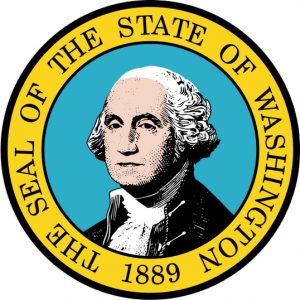On September 30, 2021, the Washington Supreme Court upheld the constitutionality of the state’s 1.2% Business & Occupation (“B&O”) surtax on large financial institutions. Wash. Bankers Ass’n v. State, No. 98760-2 (Wash. 2021). The surtax, which went into effect January 1, 2020, applies to every “specified financial institution,” which is defined in relevant part as a financial institution that is a member of a consolidated financial institution group with consolidated annual net income of $1 billion or more. 
The Washington Bankers Association and the American Bankers Association (collectively, the “Associations”) filed a declaratory relief action seeking to invalidate the surtax on the grounds that the measure discriminates against interstate commerce in violation of the Commerce Clause. In 2020, a Washington trial court entered summary judgment for the Associations, holding that the statute discriminates against interstate commerce in purpose and effect. The trial court also held that the Associations had standing under the state’s Uniform Declaratory Judgments Act (the “UDJA”) to bring an action on behalf of their members challenging the surtax.
The Washington Supreme Court reversed the trial court on appeal, concluding that the surtax does not discriminate against interstate commerce in purpose or effect. Addressing the “discriminatory effect” prong first, the court held the surtax applies to in-state and out-of-state financial institutions evenhandedly because, according to the plain language of the statute, it applies to all financial institutions operating in Washington that generate net income of $1 billion, regardless of their physical location. The court rejected evidence that the surtax falls almost exclusively on out-of-state financial institutions, opining that the surtax would not violate the Commerce Clause even if it applied only to out-of-state financial institutions. The court explained that increasing out-of-state financial institutions’ costs of doing business in state, alone, is not evidence of discriminatory effect. Further, the court observed that the B&O surtax does not discriminate against out-of-state financial institutions on the basis of their interstate commercial activity because the surtax is measured by apportioned gross income, not national or global income. And because the surtax is measured by apportioned gross income, the court found that the surtax is internally consistent and does not present any risk of multiple taxation.
With respect to the “discriminatory purpose” prong, the court concluded from the bill preamble and legislative history that the legislative intent of the surtax was to raise revenue for state services by imposing a progressive tax on wealthy taxpayers and not to discriminate against out-of-state financial institutions. The court discounted certain statements by individual lawmakers that gave the appearance of local favoritism because, the court explained, they related to proposed amendments the legislature considered but never enacted. The court noted that several other statements by lawmakers, including the prime bill sponsor, supported a finding that the surtax was intended to raise revenue and mitigate the regressive effect of the state’s tax laws, which the court considered legitimate non-discriminatory purposes.
Lastly, the Washington Supreme Court agreed with the trial court that the Associations had representational standing under the UDJA to challenge the constitutionality of the B&O surtax. The court rejected the State’s assertion that the Associations’ members were required to follow RCW 82.32.180, the statutory procedure for taxpayers seeking refunds, if they wished to challenge the surtax.
 SeeSALT Blog
SeeSALT Blog

